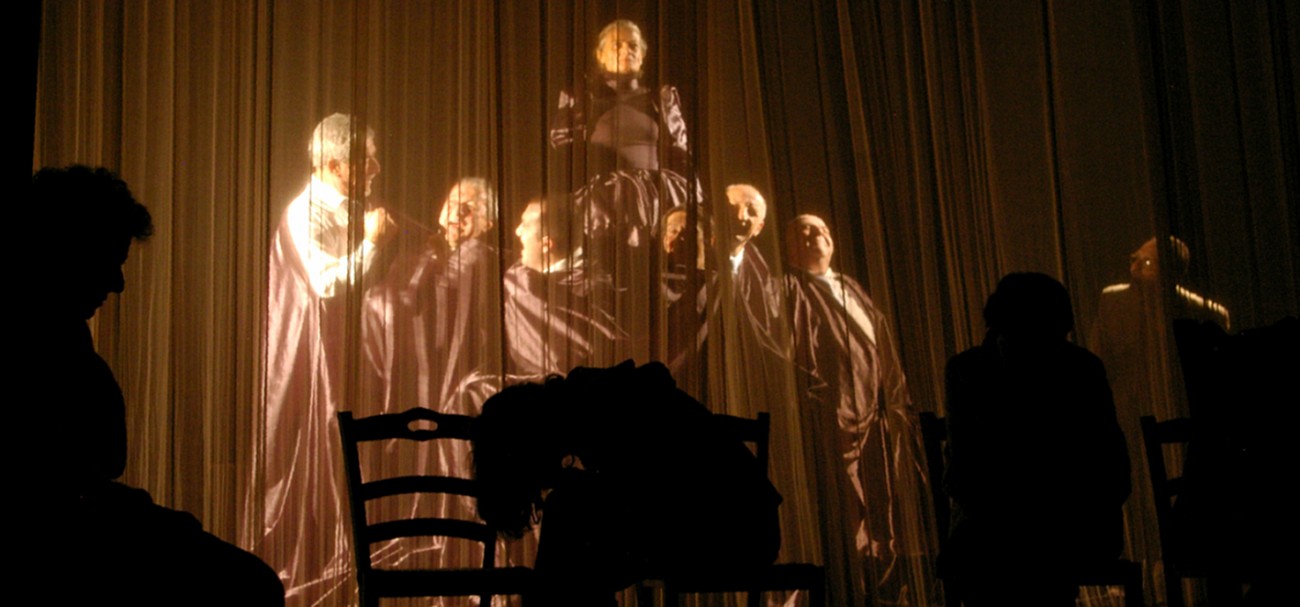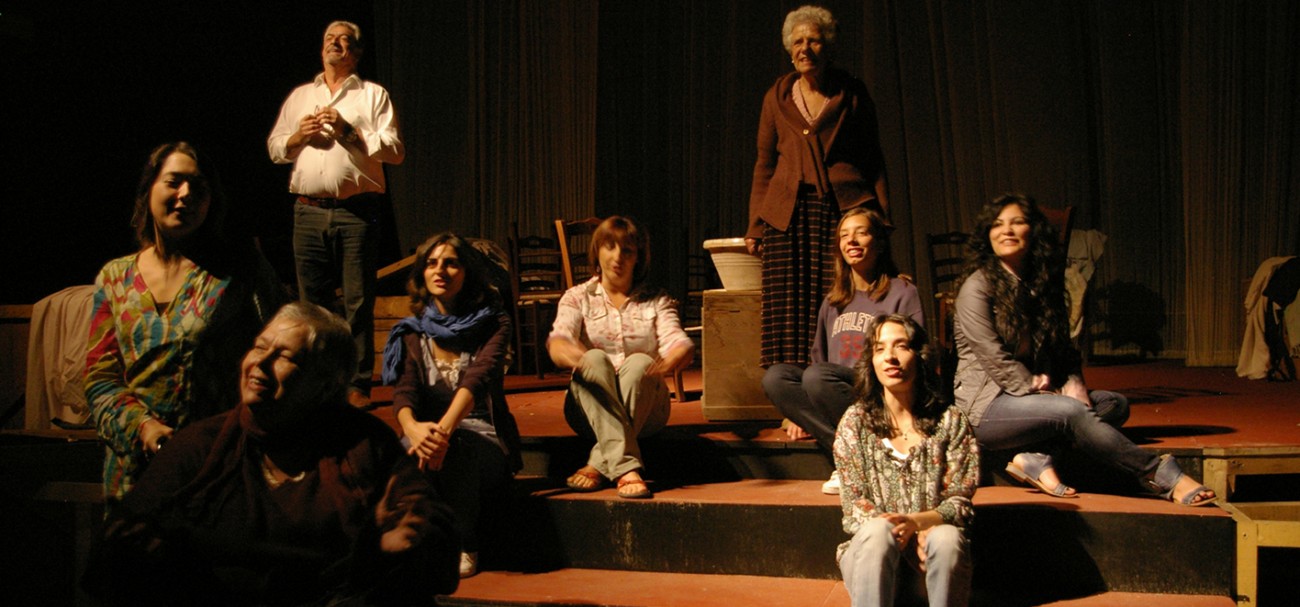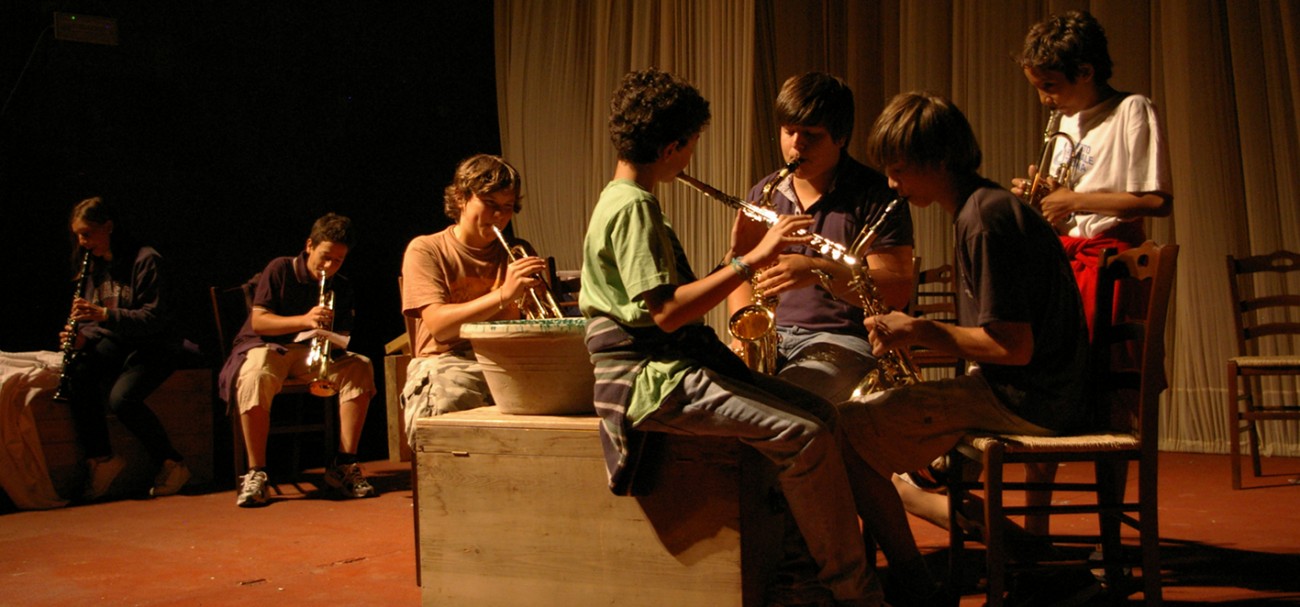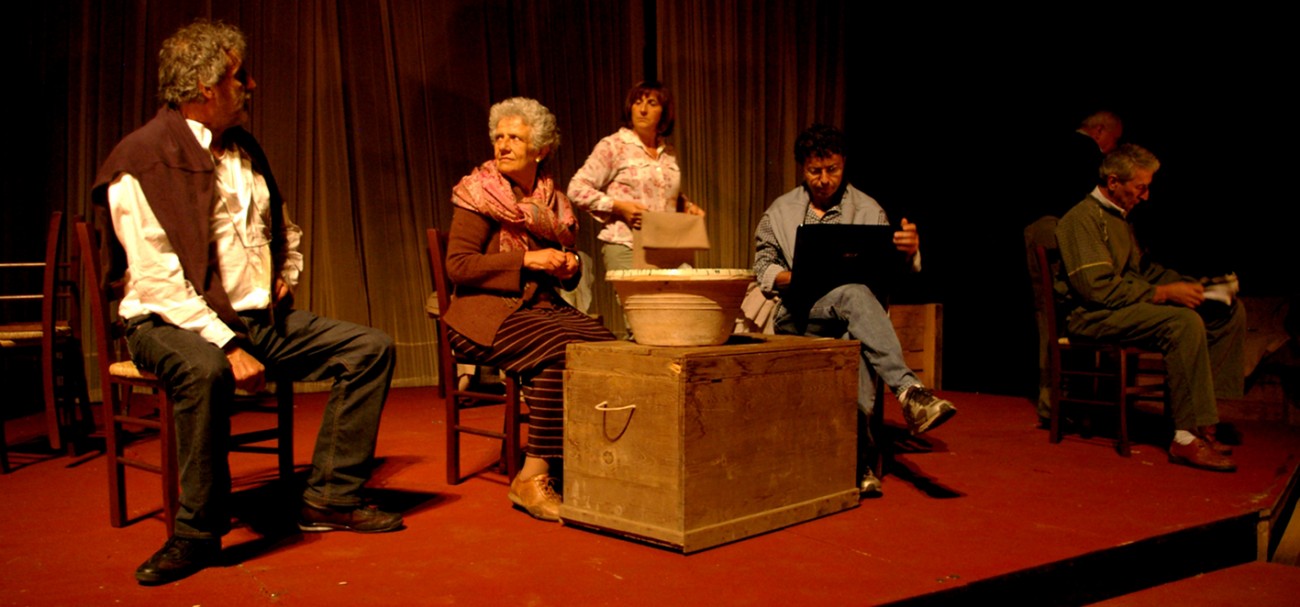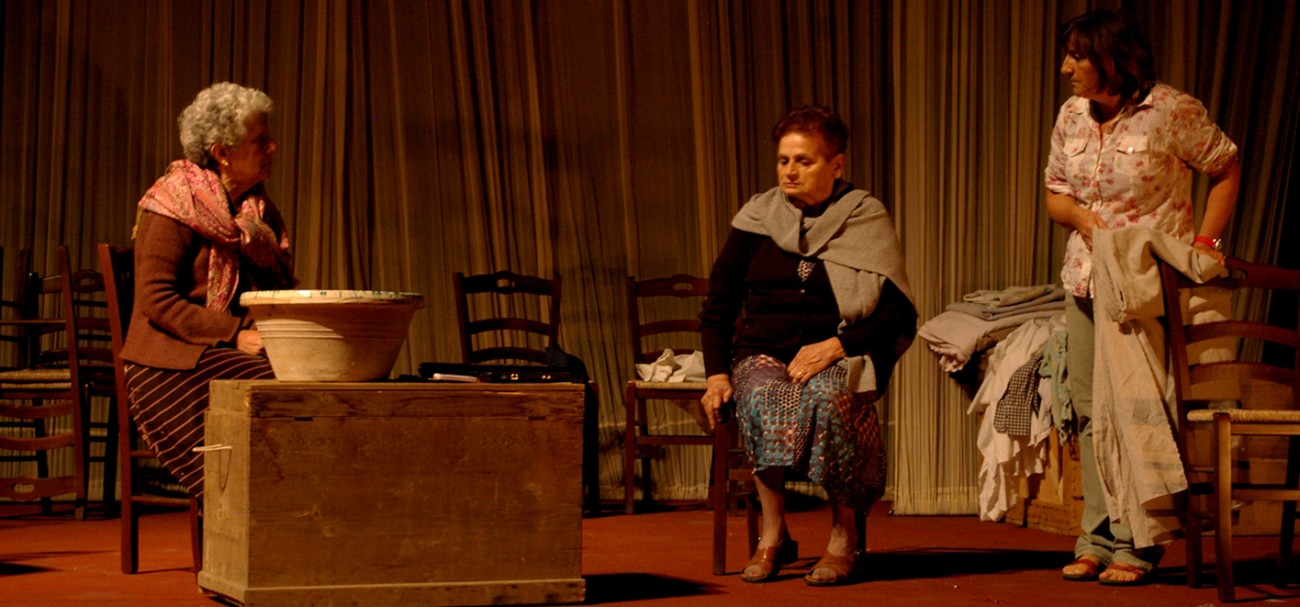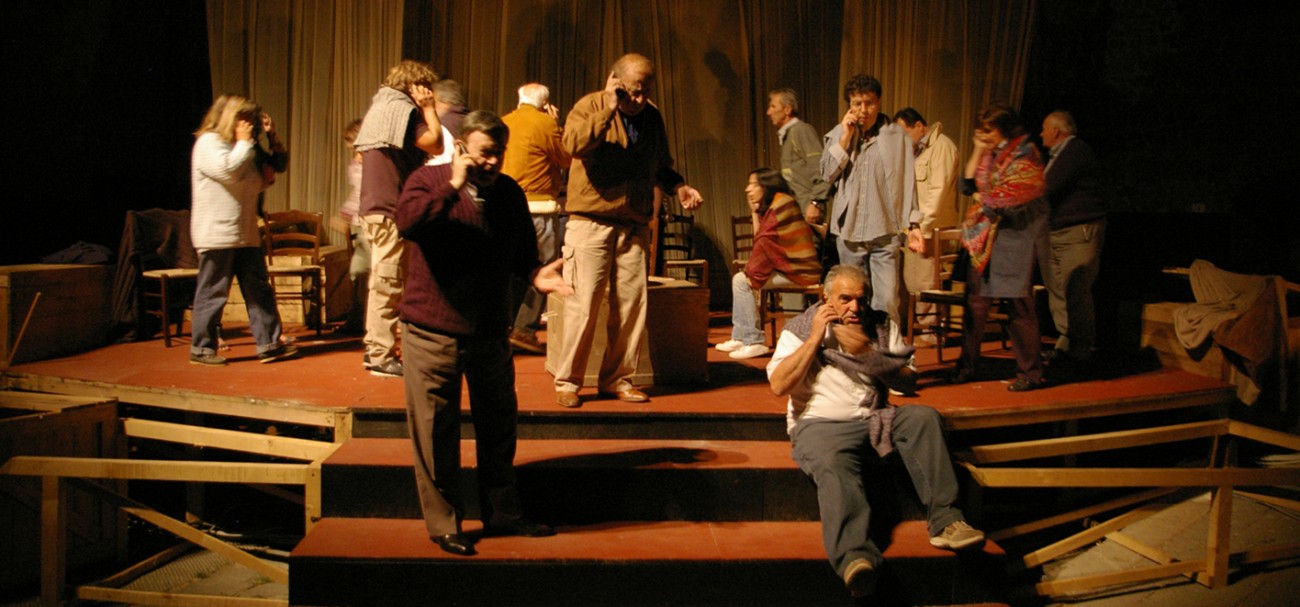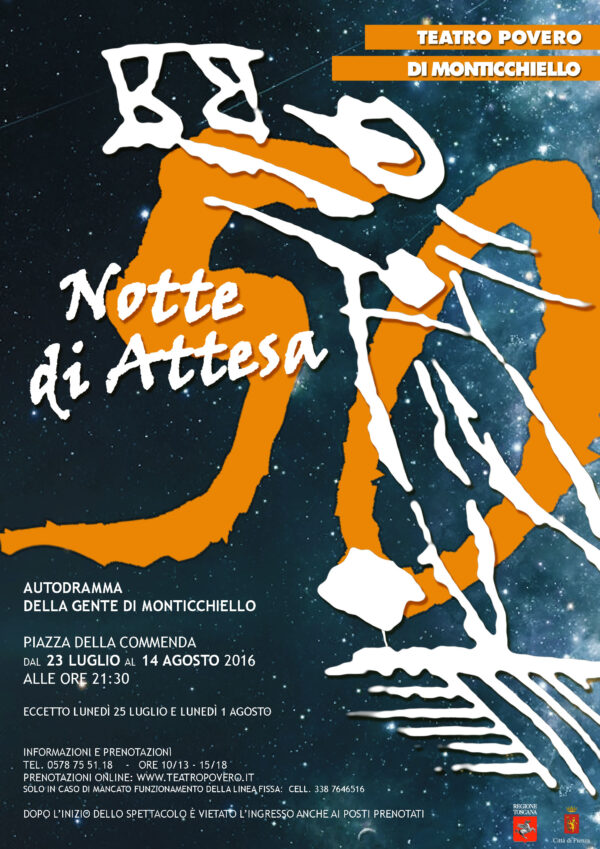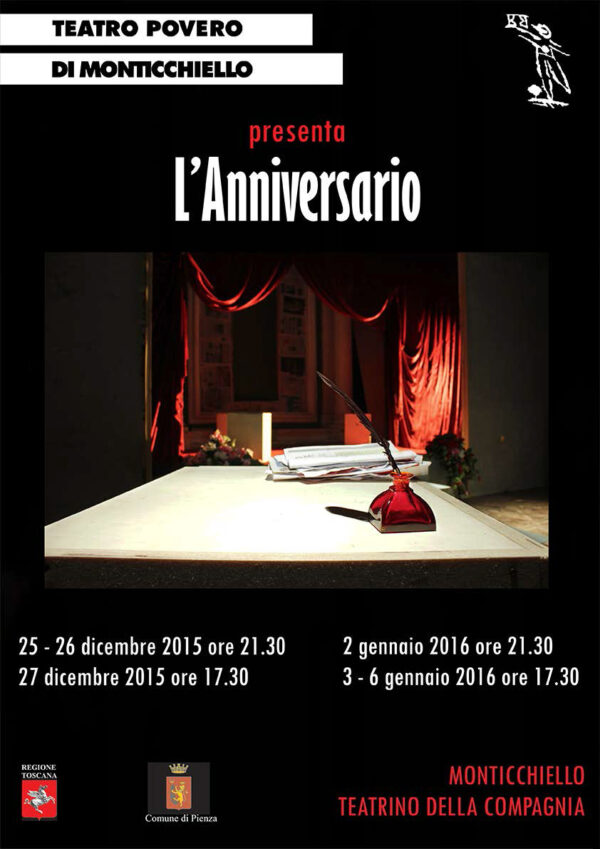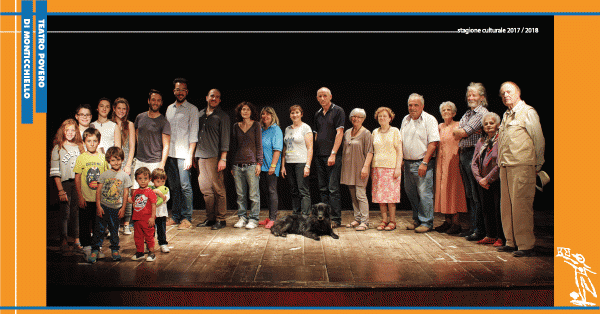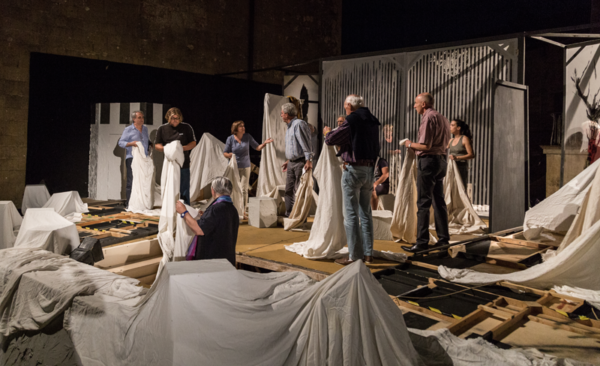In 2011, Italy was celebrating its 150th anniversary as a unified nation. At the same time, the national economy (like so many others) was in crisis, creating pressures which militated against collaboration and community spirit. In its autodramma, Monticchiello contemplated both these facts at once. The central figure—whose voice was heard, but who did not appear on stage—was an extremely old woman, Argelide, possibly as old as the nation itself.
Argelide was heard in soundtrack, fighting her last battle by playing a chess game against a Gamesmistress who obviously represented Death. Meanwhile her relatives were facing major economic problems, culminating in a new governmental decree which obliged every citizen to pay his or her share of the national debt. Their debates, and their desperation, formed much of the early part of the play.
The symbolic Gamesmistress became visible, and gave birth to a family of predatory ‘Worms’, who represented all the greed, cynicism and corruption which were seen as condemning Italy to an economic nightmare. They waited to feed on Argelide the moment she was dead; but suddely she rallied, and fought back by changing the rules of the game being played. Instead of the game of chess, which was alien to her, she substituted her own favourite card game. The Gamesmistress was confused and defeated, and the ‘Worms’ disappeared. Argelide was assimilated into the whole of Italy; and the government also changed the rules, in a dénouement which replaced pessimism with hope.

